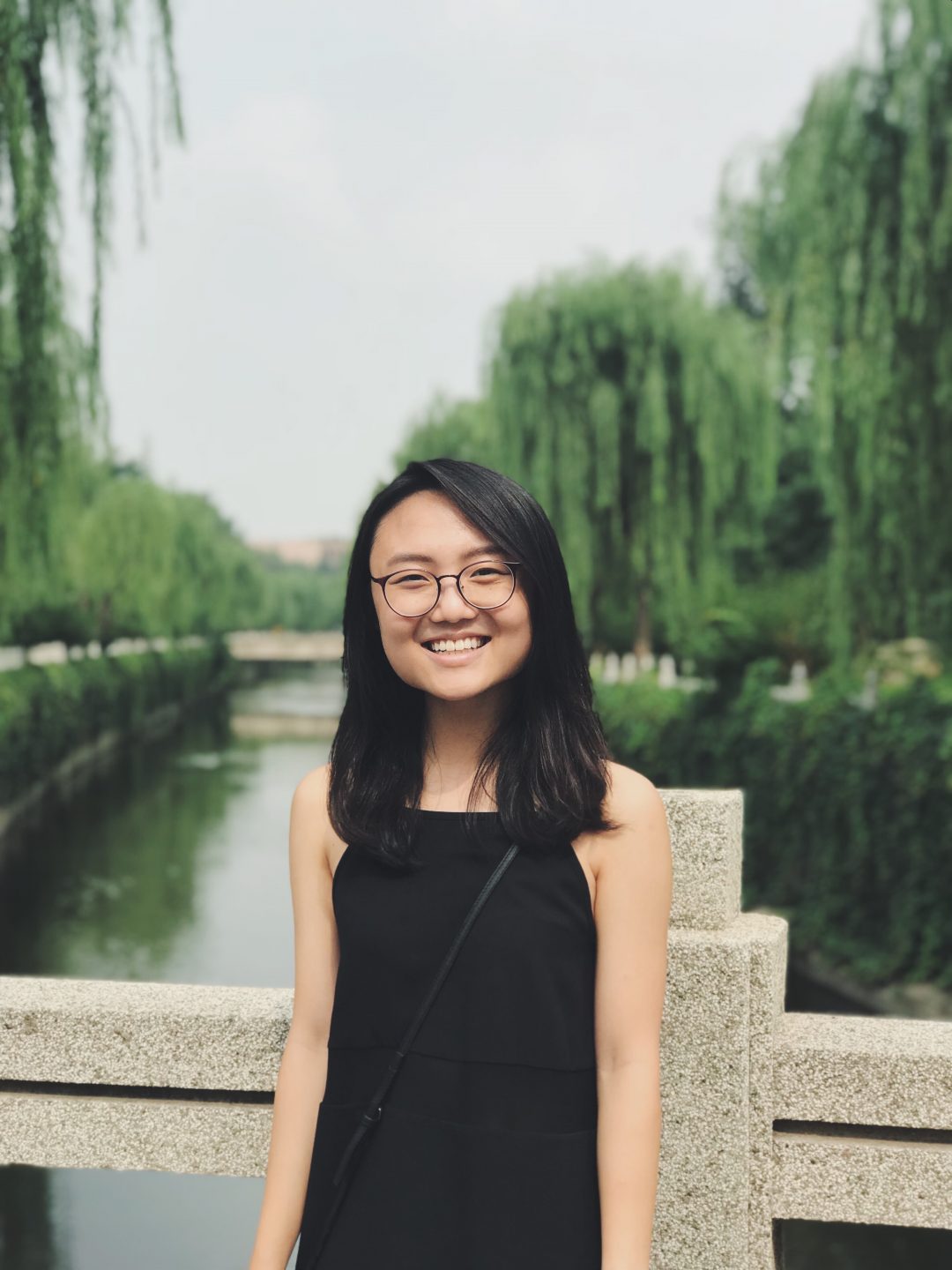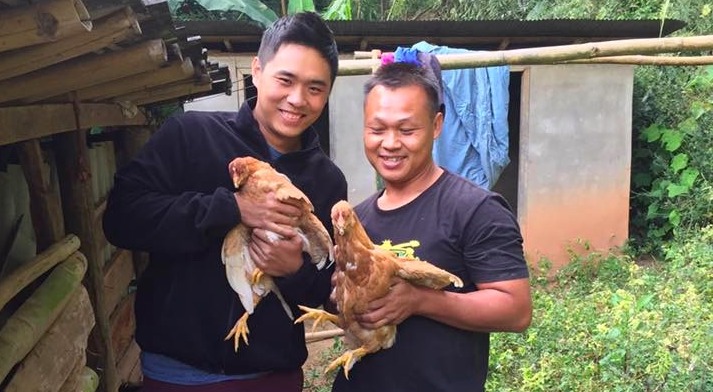
Caleb Giam (left) with Pastor Adisak, who is currently looking for a suitable plot of land that will serve as a central farm, allowing Our Chicken Story to expand to nearby villages.
These chickens are anything but little.
For the 750 villagers in Pha Mon village, Thailand, the chickens provided by Our Chicken Story are a symbol of hope and empowerment. Not only do they provide the villagers with much needed nutrients, they are also a steady source of income.
Our Chicken Story has a simple goal – to feed the multitudes by bearing food in a barren land, as inspired by Isaiah 35:1-2.
It was a goal founder Caleb Giam, 27, became convicted of in 2016.
Chicken or egg?
Giam was on a 2016 trip to Cambodia when he met two young boys, Mic and See, in an orphanage. He was struck by how much they relished simple things, like eggs.
“When they look at eggs, it’s very precious to them. They go, ‘Wah, eggs!’ ” Giam recounted.
Soon after, God spoke to him: “Feed the hungry.”
“When they look at eggs, it’s very precious to them. They go, ‘Wah, eggs!’ ”
Giam, who at that point had recently graduated from the National University of Singapore (NUS), moved to act on this conviction.
Cambodia was a natural choice for him as he was familiar with the terrain from previous trips and had friends there.
He realised that, for villagers to be able to feed themselves in the long run, his project would have to address poverty.
With this in mind, he set his sights on the formidable chicken. If the right breed of chicken was used, they could be incredibly profitable, laying up to one egg per day.
The calcium and protein deficiency he had witnessed among villagers could also be alleviated if eggs and chicken meat became part of their diet.
Using funds received from the Tan Mingwei Global Community Service Grant, a grant available to NUS undergraduates, Caleb flew over to Cambodia to embark on the first chapter of his newly-minted social enterprise, Our Chicken Story.
God’s timing
The project did not get off to a flying start. Giam struggled to find suitable local partners and half of the 40 chickens they bought died from heat.
He decided the project was no longer viable and wound down operations in Cambodia.
God spoke to him: “Feed the hungry.”
In spite of this disappointment, it was through this detour that he would meet his girlfriend, Sherlynn Yap, 25.
Sharing a heart for communities abroad, the pair had first met as members of the Hope Church missions team headed to Chiang Mai in 2015. However, due to extenuating circumstances, Yap had to pull out of the trip.
But God’s sense of timing was impeccable – on Giam’s June 2016 recce trip to Cambodia, Yap happened to also be there on a separate mission trip.
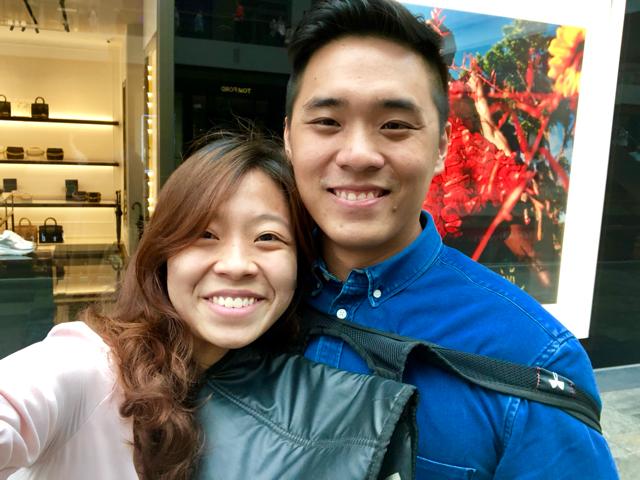
Sherlynn Yap, 25 and Caleb Giam, 27, met when they were in the same missions team to Cambodia in 2015. The two now attend Lighthouse Evangelism Church.
He did not hesitate to ask her to meet him in the city. The rest, you could say, is history.
Yap and Giam are now both working at Central Singapore Community Development Council, and have been dating since October 2016.
An inexplicable prompting
Giam did not enjoy much downtime, because soon he felt God urging him to continue Our Chicken Story’s next chapter in Thailand.
He described it as an inexplicable and sudden prompting.
Out of the blue in May 2017, Giam received an email from a South African CRU missionary he had met previously on his 2015 mission trip to Chiang Mai.
Based in Thailand, the South African couple, whom he affectionately refers to as Uncle Klaise and Aunty Ida, had not contacted him since 2015.
God remind Giam how the hungry should be fed: “I did not charge the people.”
This served as confirmation for him that Thailand was to be his next destination.
To finance the project in Thailand, he entered the #SOIMPACT Bootcamp, a social enterprise competition organised by *SCAPE and UNFRAMED.
At this point, Yap was roped in to the project by Giam.
For the competition, they had to outline a business model to be assessed by a panel of judges.
They were confronted with the dilemma of whether to give out chickens free of charge, or make it a profit-generating enterprise.
But God remind Giam how the hungry should be fed: “I did not charge the people.”
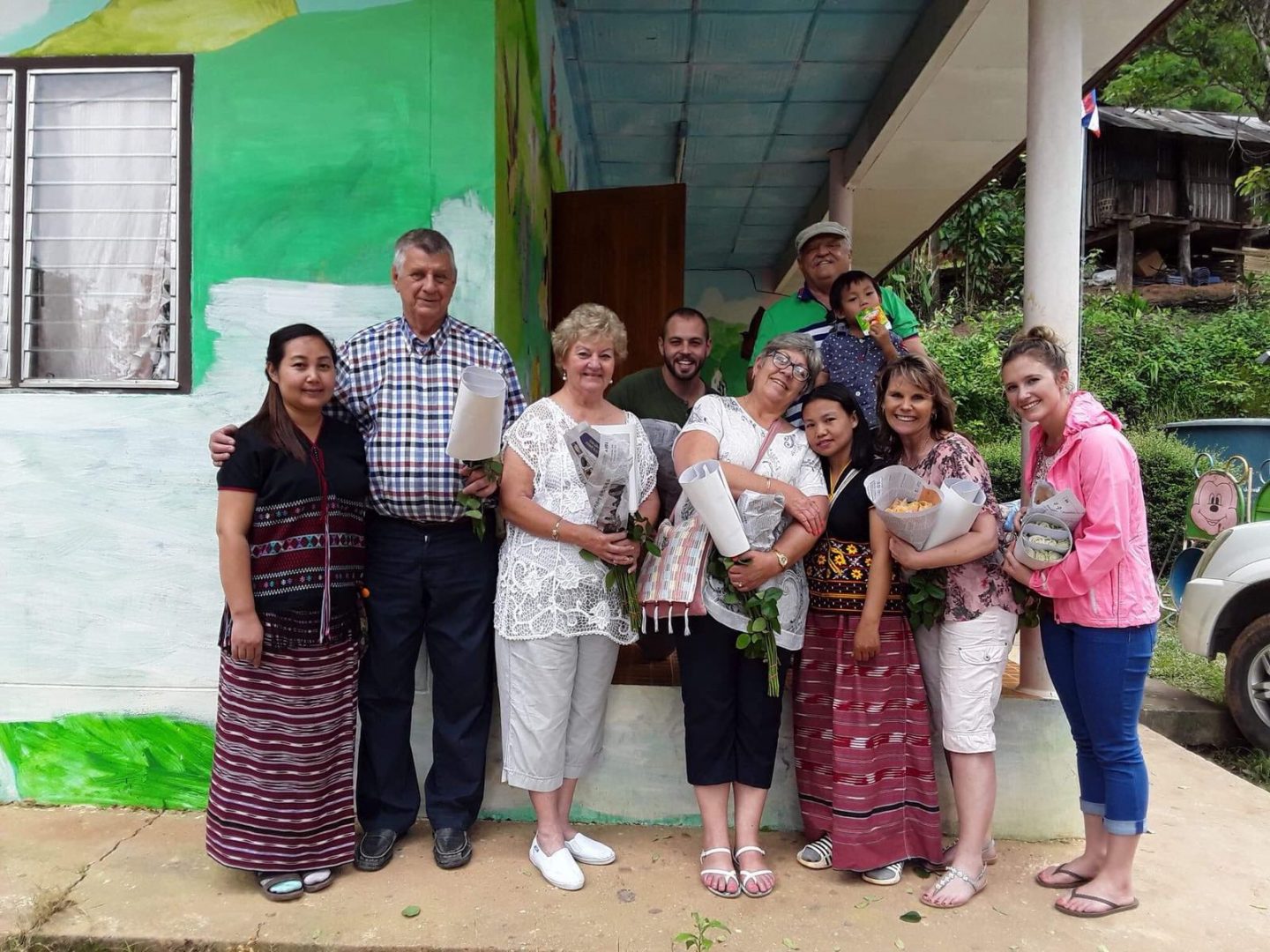
Uncle Klaise (second from left) and Aunty Ida (third from left) with their Thai and South African friends. The couple works closely with local university students and Non-Governmental Organisations to explore alternative sources of energy and food.
Giam obeyed and designed the business model such that he and Yap would not earn money, but the villagers would. They clinched third prize in the competition, which provided them with the funds they needed.
Wasting no time, the young couple and Yap’s church mentee, Sharon Tan, set off for Chiang Mai at the end of the year, armed with 50 chickens and a steely resolve.
Partners-in-Christ
Finding the right partners for the enterprise was imperative to Yap.
“I felt protective over who to let into it,” she said, emphasising that, above all, she felt their partners would have to love the Lord.
Uncle Klaise linked them up with two Thai pastors, Pastor Adisak and Pastor Yow, who hail from Mae Klung Luang village and Pha Mon village respectively.
During the planning process, the whole team would meet and pray, submitting the project to God.
This team met Yap’s expectations – during the planning process, the whole team would meet and pray, submitting the project to God.
After the recce trip, they decided to start Our Chicken Story in Pha Mon Village.
So far, the results have been promising.
Apart from the initial 50 chickens bought, donations and profits from selling the eggs have increased the total chicken count to 200.
The fowls have passed the pilot test with flying colours, with the 200 Rhode Island Reds laying 180 eggs per day on average. Only one or two have perished since last December.
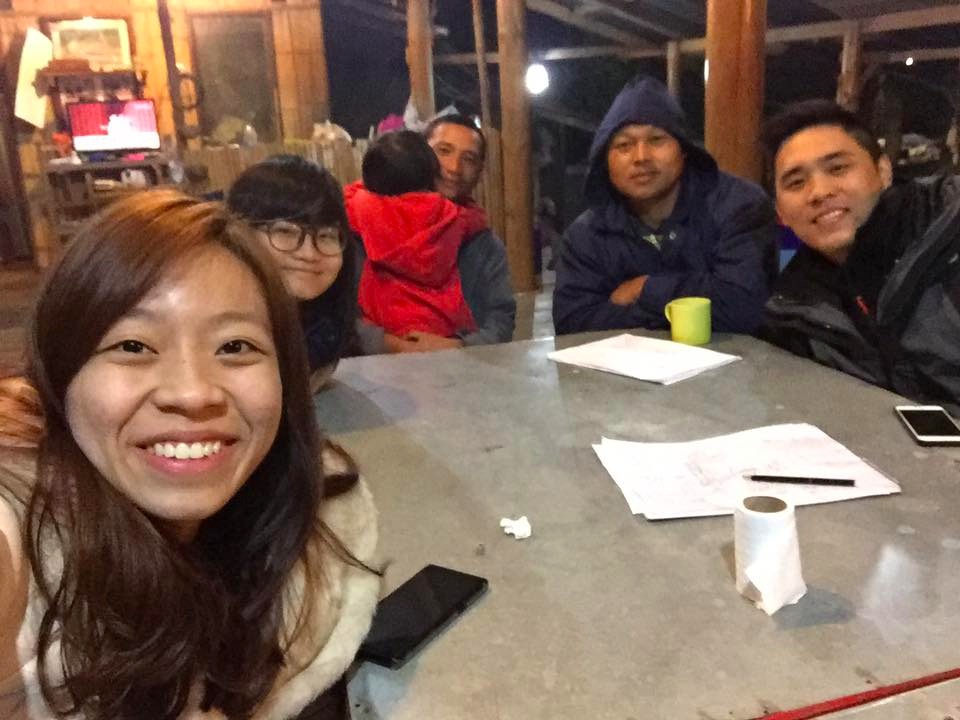
From left to right: Sherlynn Yap, Sharon Tan, Pastor Yow and his child, Pastor Adisak, and Caleb Giam. The two Thai pastors act as the hands and feet of the project, building the chicken farms, establishing local connections and searching for available land to build more farms.
“It’s really God, He’s really taking care of every chicken,” Yap declared confidently.
They are not stopping at 200 chickens. The team remains rooted in the belief that God is writing an astounding story, where He will do immeasurably more than they can ask or imagine (Ephesians 3:20).
This faith has led them to develop an ambitious blueprint where thousands of villagers will be able to enjoy food in abundance.
The blueprint
Operating within the Doi Inthanon region, they are focusing on 10 villages with a population of 4,500 people.
The plan is modelled after the stories of Jesus feeding the multitudes. Jesus first broke the loaves and gave it to the disciples, who then distributed it to the people (Matthew 14:19-20).
Just as the disciples picked up the 12 basketfuls of leftover food, the villagers can sell the excess eggs for income.
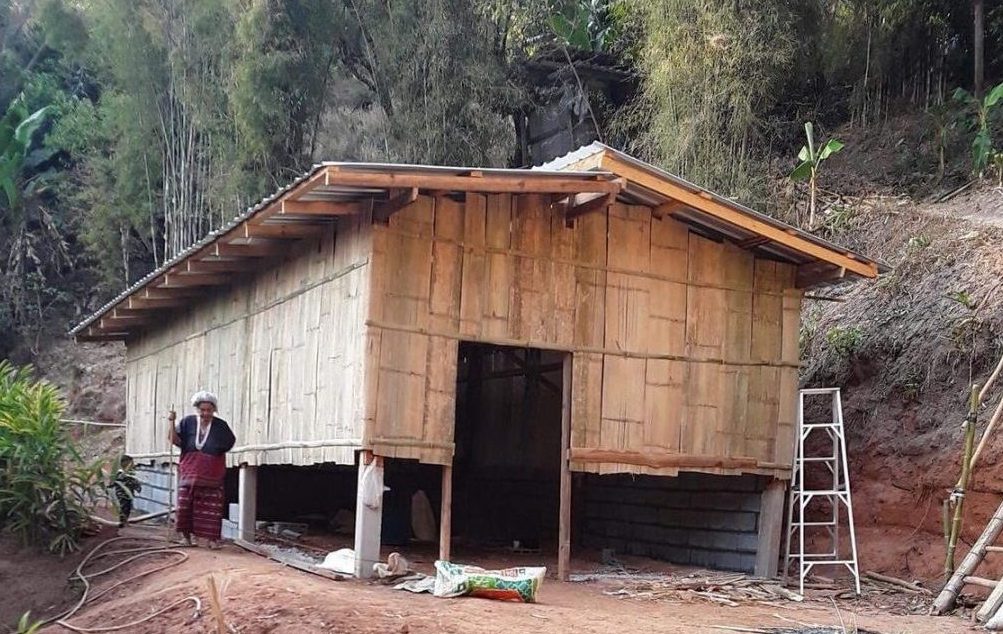
Pastor Yow’s sister helping to construct the central farm in Pha Mon village using natural materials, so as to ensure that farms will be scalable in the future.
This is how the business model looks:
Villagers
- Each family will be given chickens to rear, free of charge. The eggs produced can be used to feed their families.
- Remaining eggs will be sold to the nearby central farm. Income earned is kept entirely by the villagers.
Central Farms
- There will be seven central farms, each run by one of the seven churches in the region.
- These central farms will sell the eggs to headquarters.
- The existing farm that houses 200 chickens has achieved 80% sustainability.
Headquarters
- In the Doi Inthanon region, they are searching for a suitable plot of land for headquarters that can serve 10 villages.
- Eggs from the central farms will be packaged, transported and sold to nearby markets.
- Locals will be employed to manage the headquarters.
- All profits generated here will be funnelled towards the development of more farms and the building up of local churches.
Their eyes glimmer as they share their vision of creating an “ecosystem of food” for the hungry.
The target is for this system to be up and running within the next three to four years. At the end of the year, the couple will head over to distribute two chickens to each of the 150 families.
Their eyes glimmer as they share their vision of creating an “ecosystem of food”, where those who were once hungry would be able to grow a wide variety of food sustainably.
Our Mushroom Story is already underway, and they are looking to expand into hydroponics as well.
Cambodia and Myanmar are possible fields they may venture into.
A very good Father
Few would fork out their own money to spend their holidays building chicken coops in a remote village. Yet as the interview draws on, it’s clear how invested the pair is in this project.
They see this project not as a burden, but a privilege.
“God doesn’t need us to feed the hungry, but He invited us to join Him,” Giam said.
The biggest takeaway has been “knowing the heart of a very, very good Father” who cares for the poor and hungry.
To him, the biggest takeaway from this project has been the privilege of “knowing the heart of a very, very good Father” who cares deeply for the poor and the hungry.
“Not every couple is able to work on something together for Him,” Yap agreed, grinning as she added: “And we learn how to partner each other.”
Their chemistry is palpable. They consistently complete the other’s thoughts with ease.
According to Giam, this degree of deep friendship can be partially attributed to the time spent together toiling over the project.
Yap shared how working on Our Chicken Story gave her a better understanding of Giam’s gift for “juggling many things at the same time”.
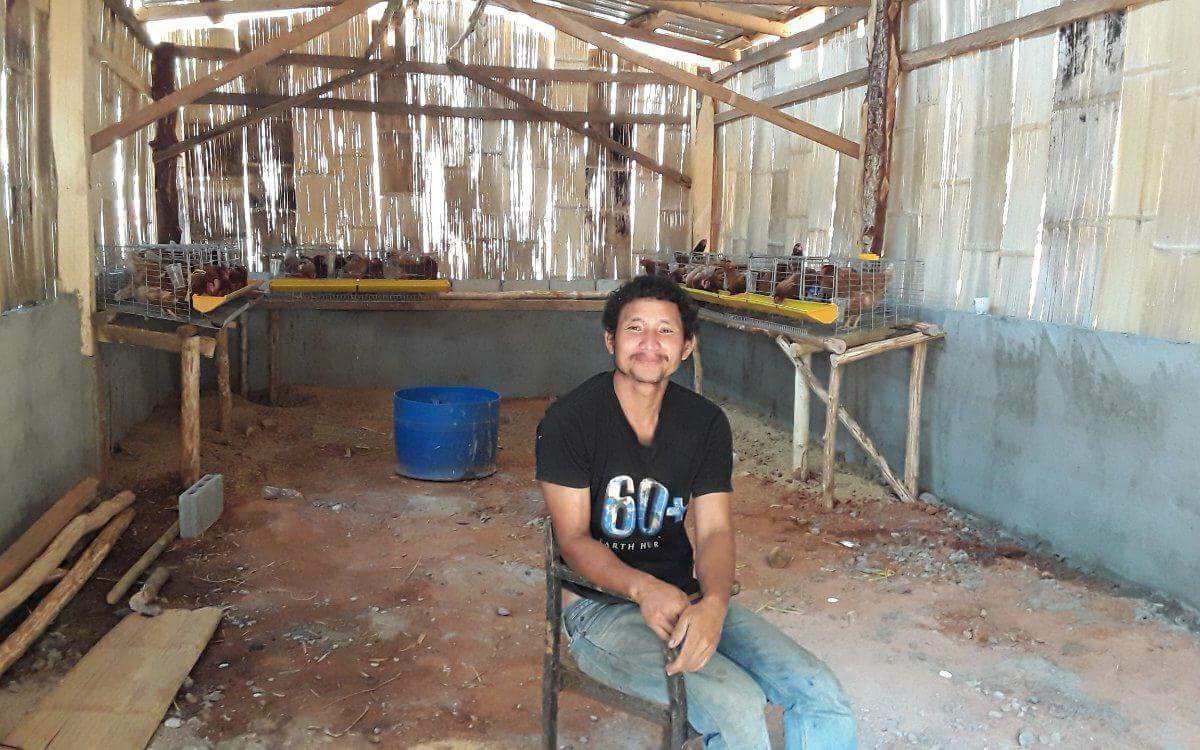
Pastor Yow in an unfinished chicken farm he has been building. Thanks to Our Chicken Story, he has been able to better feed his family of five.
Being the more level-headed of the two, she would watch out for him by telling him to slow down or step up when needed.
Initially when The Straits Times released an article on their project following their win at the #SOIMPACT bootcamp, Giam, who was not accustomed to being in the spotlight, would constantly worry about the opinion of those around him.
Yap struggled to comprehend this fear. This led to some tension between the two. However, she learnt to support Giam in prayer.
The story continues
Though the project is still in its infancy, the team has been heartened by the response in the village.
Just last year, they received a video from Uncle Klaise, with Pastor Adisak revealing the impact the project was having on the villagers.
“He’ll move and we’ll move with Him.”
Initially the villagers approached Pastor Adisak, curious about what he was building and why he was doing so.
The pastor shared the vision of Our Chicken Story and the Gospel with them, and they replied that they wanted to become Christians.
Pastor Adisak told them to wait and return when they were ready.
Eventually five villagers came to know Christ.
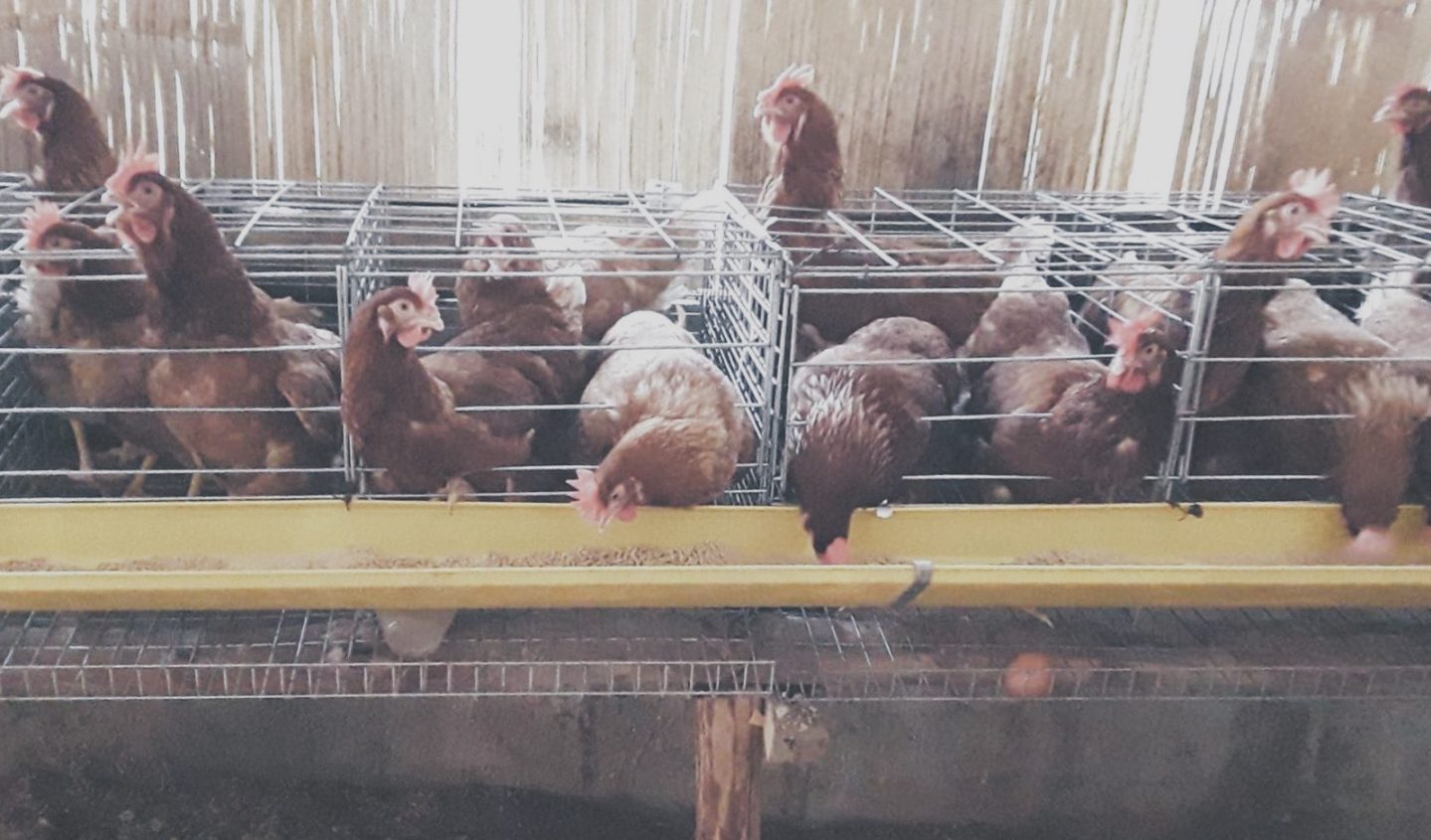
There are currently 200 Red Island Rhode chickens in the village farm. These are egg-laying chickens, with each chicken laying up to one egg per day.
In the video, Pastor Adisak said: “When you talk, they listen, but they’re not open. But when they see what you do, your life … they understand more about Jesus.”
In spite of the grand plans, Giam is firm that if God told them to hand over the project to someone else, they would.
“He’ll move and we’ll move with Him,” he said emphatically.
After all, they’re but characters in Our Chicken Story. God is the author.
How you can be a part of Our Chicken Story
Participate: Sign up for the Chicken or Egg Run: A Run With A Promise. Register to run 1km, 5km or 10km at your own convenience and record the run using a GPS tracking App. Those who complete the run will receive a medal through mail. One chicken can be given out with every two sign ups.
Partner: If you are in touch with any rural churches abroad, or going on a mission trip and believe that the local community requires a larger food capacity, write in to the Our Chicken Story team here. They are keen to offer support where possible. Plans to expand to Cambodia and Myanmar are in the pipeline.
Give: Reach out to the Our Chicken Story team here if you have any expertise, such as community work, or urban farming, or other resources which may be helpful.
We are an independent, non-profit organisation that relies on the generosity of our readers, such as yourself, to continue serving the kingdom. Every dollar donated goes directly back into our editorial coverage.
Would you consider partnering with us in our kingdom work by supporting us financially, either as a one-off donation, or a recurring pledge?
Support Salt&Light